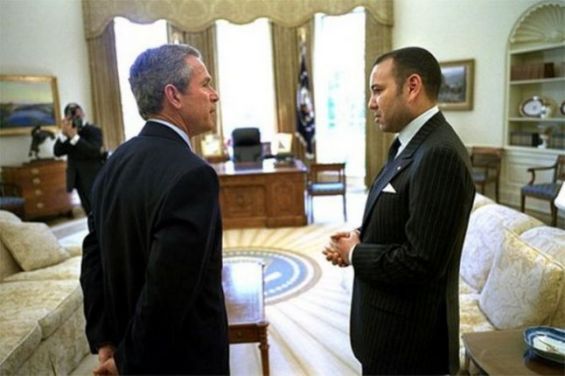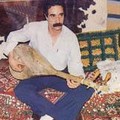By the end of the 1990s, the United States, which paid great attention to the Western Sahara conflict, realized that the idea of organizing a referendum reached a dead end. This was highlighted in a detailed document that has been declassified by the United States.
The document entitled «Sahara Policy History», was written by Morocco’s former ambassador to the United States (2002- 2011), Aziz Mekouar. In his seven-page document, submitted to the State Department in 2009, the diplomat touched upon the United States’ involvement in the territorial dispute and the classified agreements concluded between Rabat and Washington.
The document explains that Washington proposed, in 1999, an initiative that aimed, in particular, to «change the course on how best to solve» the territorial conflict. This American approach, known as the policy review, was directed at Rabat which was convinced of the idea of a conducting a UN-backed referendum in Western Sahara.
Letting go of the referendum
«The abandonment of the referendum option has been an American policy initiative, not a Moroccan one, and it took a very difficult internal political debate for Morocco to follow the American request to propose an autonomy for the Sahara», wrote Mekouar in his declassified document.
In fact, the United States conducted a series of actions to convince Morocco into letting go of the referendum, which seemed hard to conduct, and work on an autonomy plan for the Sahara. According to Mekouar, Washington argued in its policy review that this solution was no longer «interesting» for sevreal reasons.
One of these reasons, mentioned by the document, suggested that the vote would create a «winner/loser» situation that could lead to «increased tension and violence in the region», referring to the Kingdom and the Polisario Front.
Moreover, the United States ruled in its policy review on Western Sahara that Washington «would never support any initiative aiming to force Morocco to adhere to an outcome it wouldn't accept», citing the Kingdom’s sovereignty over the Sahara.
To fulfill this conclusion, the United States started by persuading King Hassan II to «drop pursuit of the referendum and accept a political solution based on this formula», revealed the unclassified file. Although it was not an easy task, the sovereign accepted the American approach and promised to discuss it with Algeria.
Urging Morocco to draft an autonomy plan
However, King Hassan II died without being able to address the American proposal with Algeria, recalls the Moroccan diplomat. When King Mohammed VI ascended the throne, a detailed American proposal was submitted to him in September, 1999. The latter included «a sovereignty/autonomy framework».
One year later, and after a series of «intense negotiations» with Moroccan officials, the United Nations submitted through the personal envoy to Western Sahara, James Baker, a proposal that was known as the «Framework Agreement». Morocco quickly agreed to Baker’s plan but the Polisario Front and Algeria refused it.
The same document reveals that Morocco was taken by surprise in 2003, after Baker came with another proposal he named «the Peace Plan». The latter, according to the same source, was «entirely different from the position Morocco had agreed to adopt at American urging, to drop the referendum, and move towards a political solution that would protect Morocco's sovereignty in the Sahara while granting the region a broad autonomy».
However, Baker’s proposal was confusing to Morocco, which thought that the diplomat spoke on the behalf of the United States. This was discussed by King Mohammed VI and US President George W. Bush during a meeting they held on the margins of the UN General Assembly, in 2003.
During this meeting, Bush «made clear that Baker did not represent the United States» and «assured the King (…) that the US would never support anything that would not be accepted by Morocco».
Furthermore, the document states that Bush told the Moroccan sovereign that «it was imperative that if Morocco did not accept the Baker proposal, it should produce its own autonomy proposal in order to move matters forward».
This was not the last time that the United States advised the Kingdom to urgently work on an autonomy plan for the Western Sahara conflict. In September 2006, the US «reiterated» through its officials that «Morocco could produce a credible plan for a wide autonomy for the Sahara under Moroccan sovereignty and would accept to negotiate with the Polisario».
The US promised, according to the same document, that Washington «would then state publicly that autonomy under Moroccan sovereignty was the only viable solution for the Sahara». Indeed, by the spring of 2007, Morocco formally submitted its autonomy plan, that Washington called, at the time, «serious and credible».





 chargement...
chargement...













